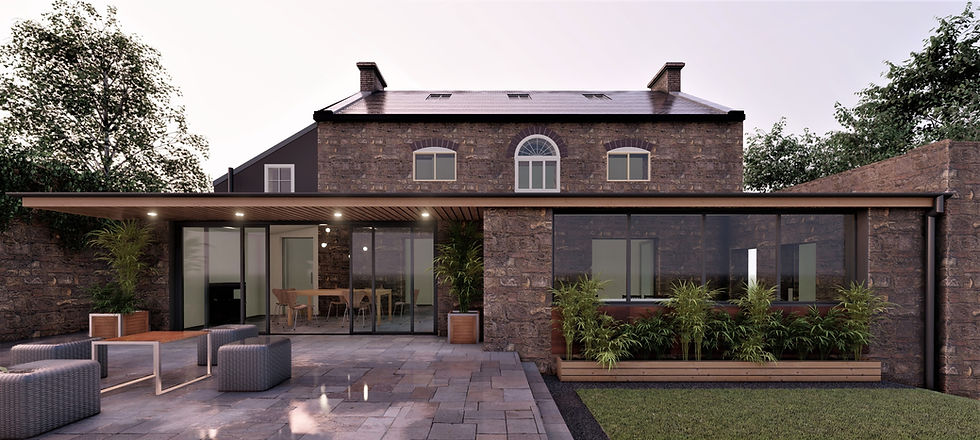Extending a Listed Building
Historic houses are an important part of the cultural and architectural heritage of the UK. They often hold a special place in the hearts of the families who own them and are a source of pride for the local community. However, as families grow and lifestyles change, it can become necessary to consider extending these houses to meet the needs of the present.

There are several considerations to keep in mind when considering an extension to a historic house. One of the most important is the impact on the building's architectural and historical significance. It is important to ensure that any changes are in keeping with the character of the original building and do not compromise its integrity. This may involve working with a conservation officer or seeking advice from a heritage specialist.
Another important consideration is planning permission. Any extension to a listed building will require listed building consent in addition to planning permission. This is to ensure that the extension is appropriate and does not harm the character of the building or its setting. It is important to engage with the local planning authority at an early stage to discuss your plans and to ensure that you have the necessary consents in place before starting work.


There are several options for extending an historic house, including:
Adding an extension to the side or rear of the property. This can be a good option if the house is set back from the road and there is space for an extension without impacting on the character of the building.
Converting outbuildings or adding a new outbuilding. This can be a good option if the main house is not suitable for extension, or if there is a need for additional accommodation that does not require direct access to the main house.
Adding a second storey. This can be a good option if the house has a strong roof structure that can support an additional storey. It is important to ensure that the new addition is in keeping with the character of the original building and does not dominate the house.
Creating a basement extension. This can be a good option if the house is set in a sloping site and there is space to excavate a basement without impacting on the foundations of the house.
When extending a historic house, it is important to work with a specialist team of professionals who have experience of working on listed buildings and understands the need to respect the character and integrity of the original building. It is also important to budget carefully, as the costs of extending a historic house can be higher than for a modern property due to the need to work with traditional materials and techniques.
Overall, extending a historic house can be a rewarding project that allows a family to meet their changing needs while respecting the character and heritage of the property. By working closely with a specialist architectural firm such as ArchiWest, and engaging with the local planning authority, it is possible to create a successful and sensitive extension that enhances the character and appeal of the house and helps to safeguard its future.
At ArchiWest we are passionate about original features and always consider the building’s heritage closely in our design concepts. Contact us if you would like to know more about how we can help with your project.
studio@ArchiWest.co.uk - 01934 311017

#heritagebuildings #somersetheritage #energyefficiency #extending #home extensions #listedbuildings
Comments